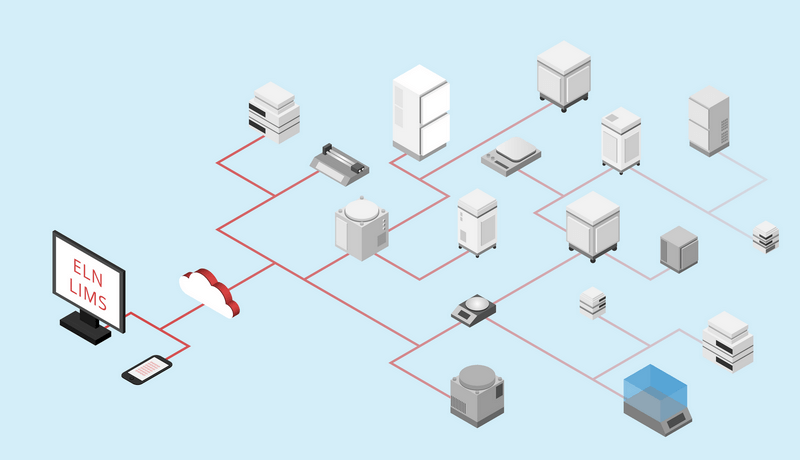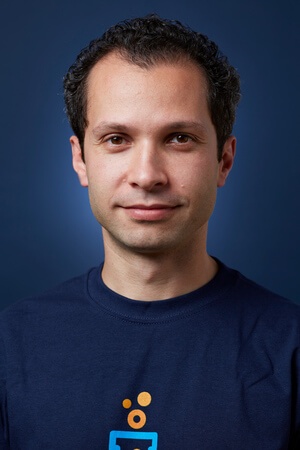Splice has recently visited an international trade show Analytica in Munich, where we had an opportunity to interview Suzanne Restaino, Global Marketing Communications Manager at Gilson Inc. Gilson is one of the leading companies for automation instrumentation and chromatography systems. She shared with us some of the most insightful thoughts on what will happen with life-science laboratories in the future and how will this influence the market of lab automation.
How do you think a laboratory will look like in the future?
Although a lot of manual work is still happening in the labs, I already see the changes, where more and more instrument automation and robots are taking place and helping the scientists. For sure, I imagine, laboratories in the future will have a ton of technology.
One of the biggest complexities that people are not being taught is how to manage data.
Let us assume that all the laboratories in the future will have IT department. Do you think it will be expected from scientists to have some programming skills, the same as IT experts?
 Well, from the technological progress point of view I am quite surprised, that programming knowledge hasn’t been integrated in the school system more. In my opinion, the one of the biggest complexities that people are not being taught is how to manage data. When I was in school I was learning how to use computers and how to manage communication, and I feel that the lab is lacking that. If we include this kind of knowledge into education system people can then learn how to better manage their data instead of just documenting it all on paper. This would be very beneficial not only for the laboratories, but for the people working in Life Sciences in general.
Well, from the technological progress point of view I am quite surprised, that programming knowledge hasn’t been integrated in the school system more. In my opinion, the one of the biggest complexities that people are not being taught is how to manage data. When I was in school I was learning how to use computers and how to manage communication, and I feel that the lab is lacking that. If we include this kind of knowledge into education system people can then learn how to better manage their data instead of just documenting it all on paper. This would be very beneficial not only for the laboratories, but for the people working in Life Sciences in general.
Do you think there are more BIO-IT companies in the last years and where are they heading, especially Gilson?
I think BIO-IT companies are way more infrequent than other companies, so being in the Life Sciences industry is very new. Also the Life Sciences industry is surprising in itself and Gilson is really pioneering in this field. If you take a look at the other companies here at Analytica, you will rarely see them having this kind of technology push. I think Gilson is blazing a trail here and exploring the opportunities to help scientists to improve their work with new technology and software solutions.
As you are inventing you are pushing the envelope of technology and consequently more challenges are coming along with it.
How will the existing companies in the field of lab automation handle the problems that come along with expansion of digital era?
 That is a good question. I think you can never have the best of both worlds. Meaning, as you are inventing you are pushing the envelope of technology and consequently more challenges are coming along with it. But when you are solving those challenges, even more business and industry generate around that. I also think we shouldn’t be fearful of sharing knowledge, simply because we are afraid that people are going to steal it. We shouldn’t stay away from sharing technology. We will solve those kind of problems along the way, as we continue to move and evolve in the industry.
That is a good question. I think you can never have the best of both worlds. Meaning, as you are inventing you are pushing the envelope of technology and consequently more challenges are coming along with it. But when you are solving those challenges, even more business and industry generate around that. I also think we shouldn’t be fearful of sharing knowledge, simply because we are afraid that people are going to steal it. We shouldn’t stay away from sharing technology. We will solve those kind of problems along the way, as we continue to move and evolve in the industry.
You need to make sure you build the brand’s recognition around the people who are pioneering the movement.
What is the biggest concern of the companies who are dealing with software development and what are the concerns of end users when it comes to software implementation in their labs?
Probably changing the end users’ habits and helping them to understand how is this going to benefit them on a daily basis. But we have to continually evolve, we can’t just stay doing the same status quo items all the time. We have to really push ourselves to be able to take the information, to share it and evolve it. I will use marketing as an example: it is an industry that is really evolved to where you can track the information, generate data bases, share the information, give targeted marketing messages to people based around that data, etc. All of this is a great way to communicate back and forth. However, people in the Science industry are still writing on a paper and using notebooks to share the information. This is still baffling me.
Startup companies are like the hungry idealists, ready to change things and make them better.
The market of software development for Life Sciences is now really evolving. How do you think the market is going to develop in the future?
Gosh, I wish I had a crystal ball, which I could just shake up and see the future. I believe there is so much room for growth in our industry and being the first in the market is a good thing. However, you need to make sure you build the brand’s recognition around the people who are pioneering this movement. Of course, there can be a few big players coming in and purchasing other small companies that is why the market needs the smaller startups. They are like the hungry idealists, ready to change things and make them better, and they can also move quicker than the larger companies. And we are only starting now, that is also the reason why I got into this industry: to have the ability to make an impact. It is really exciting time to be a part of this industry.
Splice thanks Suzanne Restaino for taking her time to make this insightful interview with us.
Blazka Orel, Msc
[tw_callout size="waves-shortcode" text="" callout_style="style2" thumb="" btn_text="Republish the article" color="#37a0d9" btn_url="https://scinote.net/blog/republish/" btn_target="_blank"]




